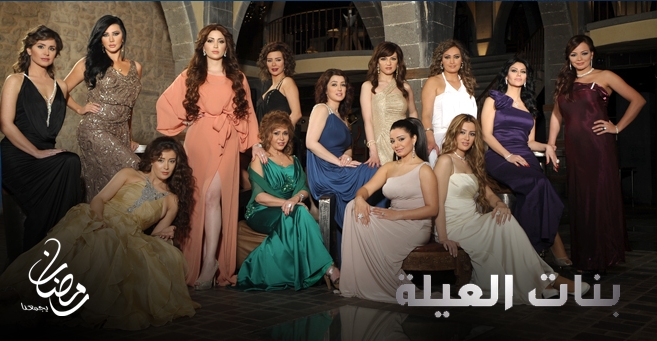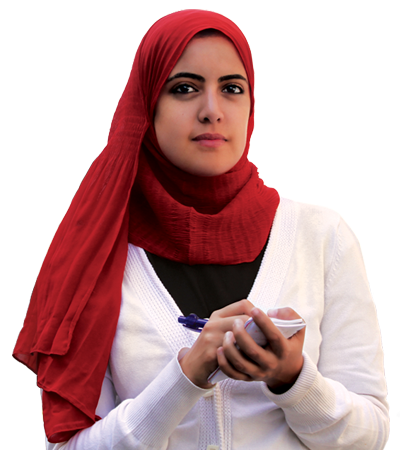Muslimah Media Watch contributor Eman Hashim was in the middle of Egypt’s Tahrir Square for the protests against former President Hosni Mubarak. Krista and Azra interviewed her to find out about her experiences.
Muslimah Media Watch: At what point did you decide to join the protests happening in Cairo? Why?
Eman Hashim: Late January 25th. I wasn’t one of those who started the first spark. When things started to get ugly and I knew that I–not only as a citizen, but as an eye doctor–was needed, I had to go. Went to pharmacy, got a collection of first aid supplies, and several drugs for eyes, burns, cuts, etc.
MMW: What was your role in the protests?
EH: I was participating in the protests and posting over the internet everything happening to us. When the connections started to get cut off, I started contacting all my contacts outside Egypt intensively to keep an eye as much as they can about what was going to happen because I was worried the old Egyptian regime was intending to be aggressive.
During the camel attack, I was doing my best to grab the already existing attention that a massacre was being executed against Egyptian people, like all the other bloggers.
MMW: What were the biggest challenges during that time?
EH: Media! The Egyptian regime was using media against us in all possible methods. They tried to attack us: accused us of being spies, getting paid from other countries, and working for some certain agendas aiming to destroy the country; and they even accused women in the protests of being bad-mannered girls aiming to make our parents force us not to go.
MMW: What was the atmosphere like?
EH: The Tahrir days were the most amazing days of my life! I don’t think I will ever forget these days. Finally my dream came true: during the major 18 protest days, I was a human, not a woman!
No one was looking at me like I was useless or why was I here. I was valued as a citizen speaking up with her opinion. Throughout the angry Friday attack, no one was looking at me as a woman. The level of stress, and rising up your awareness to much bigger issues – mostly that all our lives were in danger – made everyone easily put things in perspective. Gender, religion, race, age were not of importance that time; we were all humans, and we were all Egyptians!
MMW: What will you most remember from this period?
EH: How we used to sit in circles on the asphalt; talking, thinking, and eventually deciding what to do together. The spirit was something that I will never forget. The fact that I used to eat and drink by force because a lot of people used to come constantly with food and drinks for us. The fact that I always found a blanket during the freezing nights, and I didn’t know whose it was. The memory of us eating together in cafes, watching news, waiting for speeches, laughing, and empowering each other. In Tahrir, you sat with new people every 30 min, and now I walk in Cairo feeling most of the faces are familiar, and when I am near downtown, people exchange smiles.
Last night, I passed by a street newspaper vendor in downtown – close to where Tahrir Square is – we remembered each other and smiled! These are things that will live forever!
MMW: When we see photographs and video of protests, it’s still uncommon to see significant numbers of women in the shot (unless it is a special collection of “women protestors”). Does this reflect the reality of what’s happening on the ground? Are women protesting in other, less media–visible forms in addition to going out to the street?
EH: During the 18 days in Tahrir, women were just everywhere. That we had to make separate entries and exists for women to and from the square to make the flow of people smoother.
When a picture is taken of few men and a couple of women in the background the caption says “Egyptian youth in the revolution.” When a picture is taken where the woman is in the center, it says “Female Egyptian Revolutionaries.” Like anything related to media, it is where you look, how you look and what you see!
The number of women in the early protest between January 25 -28 were as men, approximately. I even remember how the Egyptian Police believed in equality so much that they used to be as violent with us as they were with men, and a lot of women were hit and arrested.
One thing I really don’t like is this: there’s a picture of group of our martyrs – God bless their souls – as a symbol for those who died during the revolution. In this picture, there’s one woman, Sally Zahran. First, there were objections that her picture was from before she wore the hijab, while in fact she died as a veiled woman, so we have to honor her how she died.
Then they started to object because she didn’t die in Tahrir Square, but close to it. Of course, that is meaningless since the revolution martyrs scarified their lives everywhere in Egypt, and since some of the men in that picture did not die in the square, either.
MMW: What has changed in Egypt?
EH: We feel we own our country again. We finally feel our votes count, our actions matter, and that we can actually make a difference.
MMW: What do you hope will be the long-term changes for Egypt as a result of this revolution?
EH: More individual sense of property and responsibility, liberty and elimination of any form of discrimination, whether it is based on religion or gender or anything else. Less of an effect of Muslim Brotherhood and Islamic extremists on the masses, and better distribution of the country’s resources, which will lead to equality and better harmony between all the socio-economic sectors of the nation.
I think education is the number one tool by which we can reach anything and everything we want here in Egypt!
MMW: What do you think the future has in store for women in Egypt? Do you think that there will be an increase in the number of women in leadership roles in the new government?
EH: I think the general acceptance was on its way to be wider, but unfortunately now it is obstructed by the interference of the Muslim Brotherhood and Salafi groups. The fact that we know we have to be united while fighting them–together with the remains of the old regime, the National Democratic Party–we now have to put aside anything that will divide us, even if it is women’s rights to work hard on getting the Egyptians’ rights first. Otherwise, we would all be in real trouble.
I have to say that things in the daily life matters are quite different. I can say street harassment is now less, and that I feel more able to react when it happens.
The next day after Mubarak left, we were in Tahrir Square cleaning, and I passed by a man who gave me a comment about my outfit. So I turned around and looked at him, saying, “What did you just say?” he smiled and told me “Sorry, miss!”



